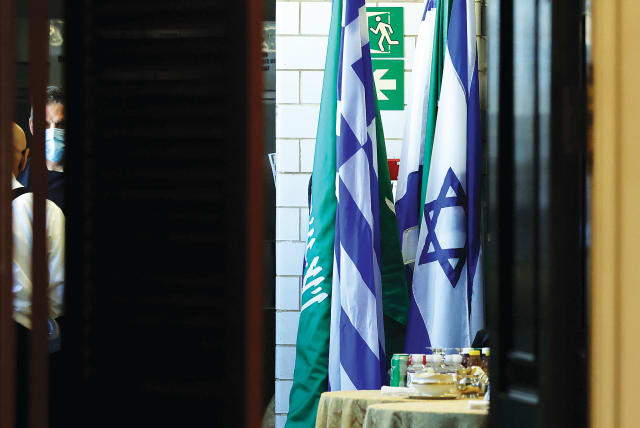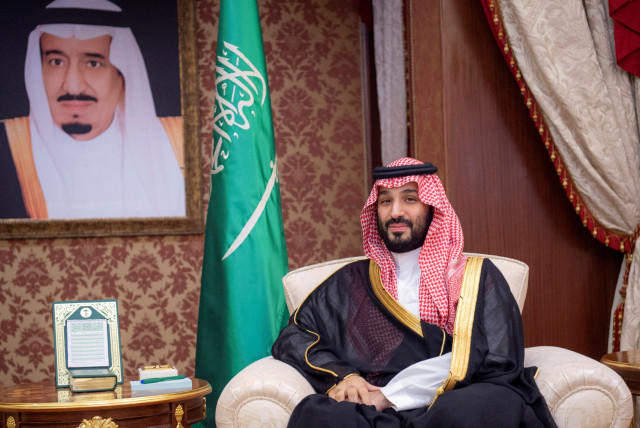What do Israel's MKs, ministers have to say about Israeli-Saudi normalization?

Finance Minister Bezalel Smotrich supports an agreement, and praised Prime Minister Benjamin Netanyahu's ability to bring about peace with Arab states.
Members of the coalition support normalization with the Kingdom of Saudi Arabia, they said separately as the week came to a close. Though some had reservations.
Finance Minister Bezalel Smotrich supports an agreement, and praised Prime Minister Benjamin Netanyahu's ability to bring about peace with Arab states, as per the Abraham Accords signed in 2020 that brought peace with Morocco, Bahrain, and the UAE. "Netanyahu has already proven it, and I trust the prime minister to do the right things for peace with Saudi Arabia. I would be very happy to see millions of tourists from the Arab world come to Israel.”
Israeli, Saudi peace a fever dream?
The Wall Street Journal published a report on Wednesday about a proposed peace deal brokered by the United States that could be signed within the next year. The agreement would, among other things, call for Israeli concessions to the Palestinians. The US denied the reports.
Smotrich’s comments are notable as his faction represents those in Judea and Samaria, of which land concessions would occur if they happened at all. Further, it is an expression of openness towards benefits for the Palestinians.
He also dismissed rumors that peace with the Arab kingdom would be contingent on the prime minister reforming his coalition with members of the opposition - opposition leader Yair Lapid (Yesh Atid) and National Unity head Benny Gantz - and dropping Smotrich’s Religious Zionism Party and National Security Minister Itamar Ben-Gvir’s Otzma Yehudit Party.
Otzma Yehudit MK Almog Cohen told Ynet that "I am for peace, but not at any cost. Freezing construction in Judea and Samaria or in Jerusalem is a mistake. Fruitful cooperation between the countries can be amazing, but there is a limit to concessions.”
Chairman of the Abraham Accords caucus, MK Dan Illouz (Likud), said in a statement to The Jerusalem Post that "The potential for Saudi Arabia to join the Abraham Accords represents a pivotal moment for the Middle East. The accords have been transformative, largely because they moved past the traditional veto power the Palestinians held over regional peace — a crucial step that paved the way for broader peace initiatives.
“We must be wary of returning to old dynamics, especially given the Palestinians' historical tendency to reject peace overtures while endorsing terror. By emphasizing direct bilateral relations, we edge closer to what once seemed an unattainable dream: a lasting peace that could end the Arab-Israeli conflict and significantly alter the course of world history."
Their comments come off the back of Foreign Minister Eli Cohen’s consistent optimistic statements towards peace with Saudis, including an op-ed in the WSJ, where he wrote that “Securing an alliance with Saudi Arabia wouldn’t be merely another diplomatic achievement; it would form the foundation upon which true regional harmony can be built.”
Jerusalem Post Store
`; document.getElementById("linkPremium").innerHTML = cont; var divWithLink = document.getElementById("premium-link"); if (divWithLink !== null && divWithLink !== 'undefined') { divWithLink.style.border = "solid 1px #cb0f3e"; divWithLink.style.textAlign = "center"; divWithLink.style.marginBottom = "15px"; divWithLink.style.marginTop = "15px"; divWithLink.style.width = "100%"; divWithLink.style.backgroundColor = "#122952"; divWithLink.style.color = "#ffffff"; divWithLink.style.lineHeight = "1.5"; } } (function (v, i) { });

